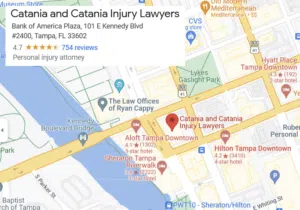
The stark reality is that insurance companies are businesses. Their highest priority is profit, not fairness. If you suffer an injury that generates a claim against an insurance policy, the insurance adjuster is your adversary, not your friend. And unfortunately, In all likelihood, the insurance adjuster is far more skilled at negotiating than you are; negotiating claims is what they do for a living.
Table of Contents
Florida’s No-Fault Auto Insurance System

Auto accident injuries generate a very large percentage of personal injury claims. Florida applies a “no-fault” auto insurance system to car accidents and other kinds of vehicle accidents (truck accidents, for example).
Florida’s no-fault Personal Injury Protection (PIP) insurance covers 80% of medical expenses and 60% of lost earnings, up to a maximum of only $10,000 for basic coverage. That means if your injuries are not serious enough to exit Florida’s no-fault system, you must claim against your own PIP insurer, not the other driver’s liability insurance policy. Florida law applies specific standards to determine whether you may exit the “no-fault” system and file a third-party claim against an at-fault driver’s insurance policy.
Third-Party Insurance Claims
If the accident was the other driver’s fault and your injuries are serious enough to exit Florida’s PIP system, you can make a third-party claim against the other driver’s insurance policy. The problem is that Florida usually does not require its drivers to purchase auto liability insurance. A successful third-party insurance claim is still possible if you are claiming against:
- A driver who carries liability insurance even though Florida doesn’t require it;
- A vehicle registered as a taxi;
- A commercial truck driver (who are required by law to be very well-insured);
- An on-duty Uber or Lyft driver;
- A commercial establishment for a slip and fall accident;
- Your doctor in a medical malpractice lawsuit; or
- Another type of accident in which the defendant carries liability insurance.
Your lawyer might help you find another defendant who carries a generous liability insurance policy. The defendant’s employer, for example, might bear liability (to be paid by business insurance) if the defendant was on duty at the time of the accident.
“Dirty Tricks” That Insurance Adjusters Like to Play
Following is only a small sample of the myriad of maneuvers that an insurance adjuster might use to deny or lower the value of your claim.
Ignoring Important Aspects of Your Claim
If you suffer a serious injury, your health insurance company might pay some of your expenses with the expectation of reimbursement once you obtain compensation from your third-party claim. If the compensation you receive for medical bills fails to take this into consideration, you could end up without enough compensation to repay your health insurer.
Another aspect of your claim that insurance adjusters love to ignore is future losses. If you suffer a serious injury, for example, you may need continuing medical treatment years or even decades into the future. Likewise, if your accident renders you occupationally disabled, you might need compensation for lost wages until retirement age.
Lulling You Into Missing the Statute of Limitations Deadline
Every state has a deadline for filing a personal injury claim. If you miss the deadline, your claim will become worthless. Some insurance adjusters will engineer endless small delays in your claim, hoping that you will miss the statute of limitations deadline. This happens less often in Florida, however, because of its relatively liberal deadline (four years after the accident in most cases).
Recording an Interview With You
Don’t agree to an interview with the opposing party’s insurance company, unless your lawyer is present. The insurance adjuster will ask you trick questions designed to damage your claim. Consider, for example, the following exchange:
Insurance adjuster: “So, to process your claim, we need to know the EXACT time of the accident.”
You (in exasperation): “OK, OK, the accident happened at EXACTLY 6:42 p.m.”
Insurance adjuster: “So at the time of the accident, you were checking the time rather than watching the road.”
Your best bet is to direct all contact from the insurance adjuster to your lawyer.
Smooth-Talking You Into Believing You Don’t Need a Lawyer
Ironically, the larger your claim is, the more friendly the insurance adjuster is likely to be. You might even hear something reassuring like, “We take full responsibility for your losses.” This statement is so vague as to be essentially meaningless. But it can be very helpful to the insurance company if it manages to convince you that you don’t need a lawyer. Insurance companies just LOVE injury victims who choose to represent themselves.
Shifting Blame for the Accident
There are two primary ways that insurance companies try to shift blame for an accident:
- By claiming that the accident was partly or wholly your fault. Under Florida’s comparative fault system, they can reduce their payout if the accident was even partly your fault.
- By claiming that the accident did not cause your injuries. If you suffer delayed concussion symptoms, for example, the insurance company might assert that your head injury occurred after the accident, perhaps in a baseball game.
You can be almost certain that the insurance company will attempt to shift at least some of the blame for the accident onto you.
Why Your Lawyer is On Your Side Even Though Insurance Adjusters Aren’t
Almost any personal injury lawyer charges legal fees on a contingency basis. That means your legal fees equal a pre-agreed percentage of what your compensation amounts to. And if you don’t win any compensation, your lawyer’s services are free of charge. In other words, the more money you make, the more money your lawyer makes. The opposite is true for insurance companies. That is precisely what makes your lawyer your friend and the insurance adjuster your adversary.
Let Your Lawyer Negotiate for You, While You Focus on Regaining Your Health
An experienced personal injury lawyer is just as much of a professional negotiator as the insurance adjuster is. And they will not fall for any insurance adjuster tricks, because they’ve seen them all before. Always remember–your lawyer cannot accept a settlement without your permission.




